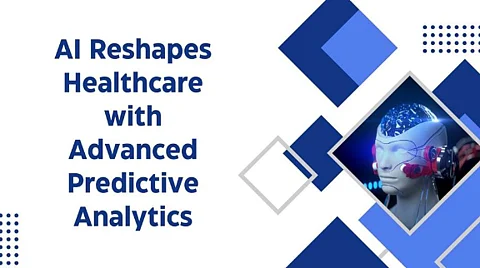

Artificial intelligence is changing the landscape of healthcare in the arena of population health management, with advanced predictive analytics in a rapidly growing digital world. Research undertaken by India's healthcare technology researcher, Sriram Sitaraman, presents how AI-powered systems revolutionize efforts for disease prediction, prevention, and treatment strategies. This analysis gives a clear indication of the transformative role of machine learning algorithms in processing vast amounts of healthcare data to make better predictions and provide personalized interventions. AI-MH.
AI health care improves chronic disease prediction and management. It now uses 178 different factors, from BMI to lifestyle habits. Modern machine learning models can predict Type 2 Diabetes up to 28 months earlier than traditional diagnosis, with an accuracy rate of 89.6%. Similarly, in the cardiac sector, neural networks classify 42 risk factors, making predictions of acute cardiac events at an accuracy of 92.3%, and reduced cardiac incidents by 29.7%. All of these breakthroughs show that AI can redefine prevention of disease, and patient outcome is going to improve on the whole planet.
Advanced AI systems redefine how we identify and respond to outbreaks of diseases. Processing 470,000 data points per day across 132 nations, these technologies reduce the detection time by 83.5% as compared to traditional methods. These AI systems process 6.9 gigabytes of health data every day and recognize patterns that are very subtle yet indicative of possible health risks. Such recognition will enable quicker and more effective responses to emerging health threats. This not only saves lives but also prevents outbreaks from happening by timely interventions.
Modern AI systems are infusing socioeconomic information into population health analysis to highlight persuasive links between the circumstances of a social nature and the outcomes regarding health. A 1,248 unique points analysis across geography allows AI to tell the world that household income variation to the tune of $8,500 reflects a 25.6 percentage difference in rates for chronic diseases in metro areas. Similarly, areas where the rate of unemployment is more than 7.8% have a 29.4% higher prevalence of mental health disorders. These facts have allowed policymakers and service providers to look at social determinants in a more effective way.
Robust measures for safeguarding data privacy and ensuring ethical use accompany AI advances in healthcare. Modern systems employ HIPAA-compliant encryption technologies that achieve a 99.94% success rate in preventing unauthorized access. Federated learning techniques enable AI models to train collaboratively while protecting 92.8% of sensitive patient information. Furthermore, fairness-focused algorithms have reduced bias incidents from 11.8% to 3.2%, thereby ensuring equitable healthcare delivery without compromising prediction accuracy, which remains above 89.7% across all population groups.
Personalized medicine using AI is taking a huge leap by incorporating genomic data into healthcare systems. Current models, which analyze genetic markers, predict patient responses to drugs with 91.3% accuracy, 43.2% more than the traditional method. Forward thinking, advanced neural networks will eventually handle whole-genome sequencing data from up to 425,000 patients in 2025. This technology will allow a better detection of rare genetic variants through 94.8% sensitivity, opening many doors for an individualized plan.
AI presents unprecedented progress with mental health predictions and treatments. Advanced machine learning models can identify signs of major depressive episodes up to 18 days before clinical manifestation, with an accuracy of 88.9%. These systems, through natural language processing, analyze patient interactions to detect early warning signs of psychological distress. Proactive therapeutic interventions enabled by these technologies have reduced acute episodes by 32.5% and improved treatment adherence by 41.8%, marking a transformative step in mental health care management.
Predictive algorithms in healthcare have transformed resource forecasting, allowing the prediction of demand up to 45 days in advance with an impressive accuracy of 93.8%. In contrast, it has improved resource utilization by as much as 41.2% and reduced operating expenses by 28.9%. Moreover, sophisticated scheduling algorithms have reduced average patient wait times from 42 minutes to 18 minutes, streamlining operations and significantly improving the patient experience.
However, there are huge challenges in the data quality, infrastructural limitations, and disparities at the global level in AI adoption. Solving these will take concerted efforts by the technology providers, healthcare organizations, and policymakers. Besides, ethical concerns regarding data usage, decision-making, and patients' autonomy are also to be put forward to enable equitable and effective implementation of AI.
As evident from the research of Sriram Sitaraman, AI-powered healthcare analytics is simply a new paradigm for managing population health. AI is poised to transform the industry into more efficient, equitable, and effective healthcare systems; the future of AI in healthcare promises increasingly sophisticated applications that will improve lives throughout the world as we overcome current challenges.
